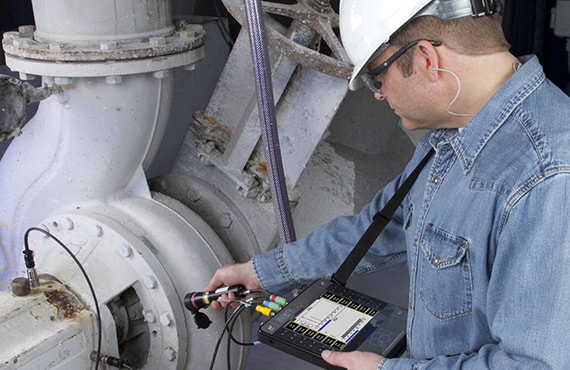IEC 62196 – Electric Vehicle Charging Connector Test
The IEC 62196 standard is a cornerstone in ensuring the safety and reliability of electric vehicle (EV) charging connectors. This test protocol, developed by the International Electrotechnical Commission (IEC), addresses the functional characteristics, mechanical integrity, electrical performance, and environmental resilience of EV charging connectors. The standard covers various types of connectors including Type 1, Type 2, DC Combo, CCS1, and CCS2, which are critical components in any electric vehicle infrastructure.
The IEC 62196 series is particularly vital for industries where the reliability and safety of charging systems are paramount. This includes automotive manufacturers, EV manufacturers, and charging station operators. The standard ensures that all connectors meet the same stringent requirements, fostering a consistent and secure environment for electric vehicle users.
The testing process involves several stages including visual inspection, dimensional measurement, electrical resistance check, insulation resistance test, contact resistance measurement, and mechanical durability tests. Each of these steps is designed to verify that the connector can withstand the demands placed upon it in real-world conditions.
Visual inspections ensure that there are no visible defects or damage on the surface of the connector. Dimensional checks confirm that the connector meets the specified tolerances as defined by IEC 62196, ensuring compatibility and proper mating with other connectors. Electrical resistance tests measure the internal resistance of the conductors to ensure they can handle the expected current without excessive heat generation.
The insulation resistance test evaluates the dielectric strength of the connector, confirming that it can withstand high voltages without breakdown. Contact resistance measurements check for any increases in electrical contact resistance over time or use, which could indicate wear and tear or poor design. Mechanical durability tests simulate the stresses that connectors endure during daily use, such as insertion and extraction cycles.
By adhering to IEC 62196, manufacturers can ensure their products meet global standards, enhancing user confidence and safety. This is particularly important in a rapidly growing market where interoperability between different EV models from various manufacturers is essential. The standard also supports the development of new technologies by providing a robust framework for innovation.
The implementation of IEC 62196 not only ensures product quality but also facilitates seamless integration into existing infrastructure, encouraging widespread adoption of electric vehicles. As the demand for sustainable transportation continues to rise, compliance with this standard becomes increasingly critical for businesses operating in the oil and gas sector, where reducing carbon emissions is a key focus.
In summary, IEC 62196 plays an indispensable role in ensuring that EV charging connectors are safe, reliable, and interoperable. By adhering to these stringent standards, manufacturers can build trust with consumers and contribute to the advancement of sustainable transportation solutions.
Why Choose This Test
- Comprehensive Coverage: Tests all critical aspects including electrical performance, mechanical durability, and environmental resilience.
- Global Recognition: Accepted in over 100 countries worldwide, ensuring broad applicability and acceptance.
- Promotes Interoperability: Ensures that different EV models from various manufacturers can operate seamlessly with each other.
- Enhances Safety: Identifies potential hazards early to prevent accidents and product failures.
- Facilitates Compliance: Helps businesses meet regulatory requirements and industry standards, reducing the risk of non-compliance penalties.
- Sustains Innovation: Provides a robust framework for developing new technologies that are safe and reliable.
- Reduces Costs: Prevents costly recalls and repairs by identifying issues early in the production process.
Quality and Reliability Assurance
The IEC 62196 standard is instrumental in ensuring the highest levels of quality and reliability for electric vehicle charging connectors. By adhering to these stringent requirements, manufacturers can guarantee that their products will perform consistently across different environments and conditions.
One of the key benefits of this test protocol is its ability to identify potential issues early in the development process, allowing for timely corrections before mass production begins. This proactive approach not only enhances product quality but also minimizes the risk of costly recalls and customer dissatisfaction.
The standard’s emphasis on mechanical durability ensures that connectors can withstand repeated insertion and extraction cycles without compromising performance or safety. This is particularly important given the high usage rates expected in public charging stations, where connectors are subject to frequent use by a diverse range of users.
Electrical performance tests are equally crucial, ensuring that connectors can handle the required current levels safely and efficiently. By meeting these criteria, manufacturers can provide users with a reliable and efficient charging experience, which is essential for the widespread adoption of electric vehicles.
The IEC 62196 standard also includes environmental resilience requirements to ensure that connectors can operate reliably in various climatic conditions. This is particularly important given the global nature of the EV market, where users may encounter a wide range of weather and temperature conditions.
By incorporating these quality and reliability assurance measures into their production processes, manufacturers can build trust with consumers and demonstrate their commitment to safety and excellence. This, in turn, can lead to increased customer satisfaction and loyalty, as well as improved brand reputation and market share.





